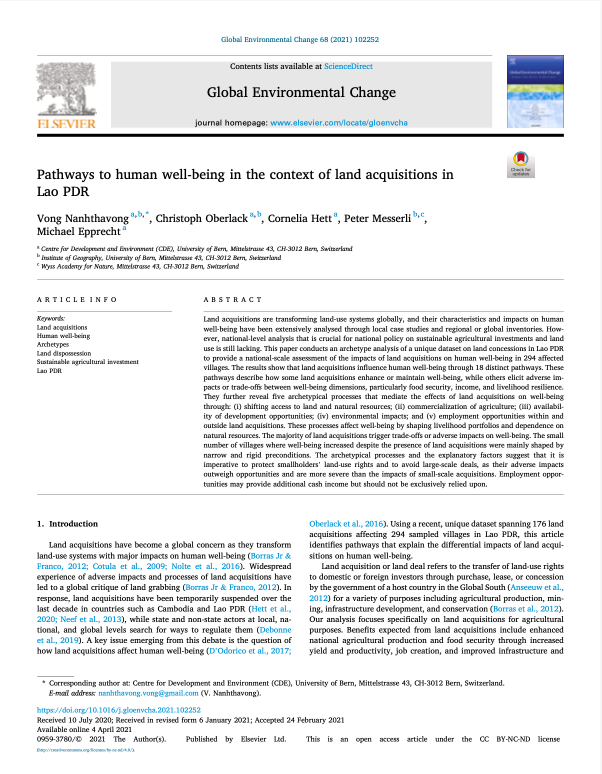Resource information
Land acquisitions are transforming land-use systems globally, and their characteristics and impacts on human well-being have been extensively analysed through local case studies and regional or global inventories. However, national-level analysis that is crucial for national policy on sustainable agricultural investments and land use is still lacking. This paper conducts an archetype analysis of a unique dataset on land concessions in Lao PDR to provide a national-scale assessment of the impacts of land acquisitions on human well-being in 294 affected villages. The results show that land acquisitions influence human well-being through 18 distinct pathways. These pathways describe how some land acquisitions enhance or maintain well-being, while others elicit adverse impacts or trade-offs between well-being dimensions, particularly food security, income, and livelihood resilience. They further reveal five archetypical processes that mediate the effects of land acquisitions on well-being through: (i) shifting access to land and natural resources; (ii) commercialization of agriculture; (iii) availability of development opportunities; (iv) environmental impacts; and (v) employment opportunities within and outside land acquisitions. These processes affect well-being by shaping livelihood portfolios and dependence on natural resources. The majority of land acquisitions trigger trade-offs or adverse impacts on well-being. The small number of villages where well-being increased despite the presence of land acquisitions were mainly shaped by narrow and rigid preconditions. The archetypical processes and the explanatory factors suggest that it is imperative to protect smallholders’ land-use rights and to avoid large-scale deals, as their adverse impacts outweigh opportunities and are more severe than the impacts of small-scale acquisitions. Employment opportunities may provide additional cash income but should not be exclusively relied upon.

